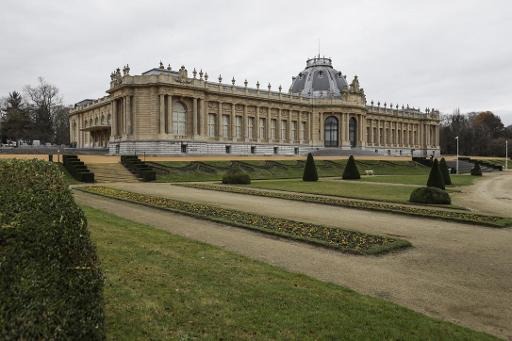Tervuren’s Royal Museum for Central Africa, renamed AfricaMuseum, officially reopened on Saturday with a new permanent exhibition that aims to show a more critical view of Belgian colonization. The museum was closed for five years for renovation.
Created in 1897 on the occasion of the Brussels World Exhibition, the Museum of Congo had not changed its permanent exhibition since the 1950s, before decolonization. A refurbishment was necessary. A new building has emerged, but the original building and its interior being classified, everything could not be changed. For example, some quotes by Kings Leopold II and Albert I, glorifying colonialism, are still presented.
The new permanent exhibition "results from a synthesis" of contributions from African and European experts, but also from the African diaspora, museum director Guido Gryseels insists. "We present several views and it is up to the public to develop its own opinion" of this "non-ethical system that was combined with racist ideology and violence."
Works of African artists are emerging. For example, "Ombres" (Shadows), by the Congolese Freddy Tsimba, was integrated into the memorial for the 1,508 Belgians killed during the early colonial period (1897-1908), but the many more Congolese victims are not mentioned.
“Ombres” is inspired by the story of seven Congolese who were brought to Tervuren in 1897 at the time of the Universal Exhibition, and who died there. Their names, as well as other information such as the place and date of their death, were inscribed on the window of the gallery, along the central courtyard. When the sun shines, the shadow of these inscriptions is projected under the names of the deceased Belgians.
The Crocodile Room remains unchanged, to show how natural history museums were designed a century ago. "Symbolically, a screen separates this room from the others to indicate (...) that it does not reflect our current vision of Africa," Guido Gryseels said.
Through its new permanent exhibition, the AfricaMuseum also presents the long history of the continent, which often starts from a Western point of view with the arrival of Europeans. "Yet ‘Man’ was born in Africa," the museum recalls. One of the flagship objects exposed is the Liavela mask, the oldest known wood sculpture (8th or 9th century), which was discovered in Central Africa.
The room dedicated to Belgian colonial history takes as its starting point the key position of Central Africa in world trade during the late 15th century. The creation of the Independent State of Congo, personal ambition of Leopold II, is then presented, followed by the recovery in 1908 of the country's administration by Belgium. The hall ends with an overview of the postcolonial history of Burundi, Congo and Rwanda.
Contemporary Africa and the challenges it faces are also included in the exhibition. One room shows the paradox of Congo, a country rich in natural resources, but whose population remains poor. "We wanted to take an opposing stance to the usual by showing, in addition to soil resources, other resources such as the Congolese population," chief curator for natural sciences, Didier Van den Spiegel, said.
The institution itself is addressed. The Congo museum was seen by Leopold II as "a propaganda tool for its colonial project," AfricaMuseum explains. "Right from the start, the museum encouraged military officers, missionaries, traders and Western scientists working in Congo to collect items there. A war booty obtained during violent confrontations." Restitution of African art is also up for debate, and the museum authorities declare themselves open to the question.
The Afropea Room is dedicated to the diaspora. "Sub-Saharan Africans account for 2% of the Belgian population, some 40% are of Congolese origin," the museum indicates. Relations with the diaspora have sometimes been difficult, the director admits. "Some partners do not actually see how their collaboration has been incorporated into the new museum," said Primrose Ntumba, collaborator for relations and partnership with the African diaspora.
The museum open on Sunday to the public. The official opening took place on Saturday morning, in the absence of the King, for reasons of practical organization and because discussions are ongoing, including on the restitution of works.
The Brussels Times

